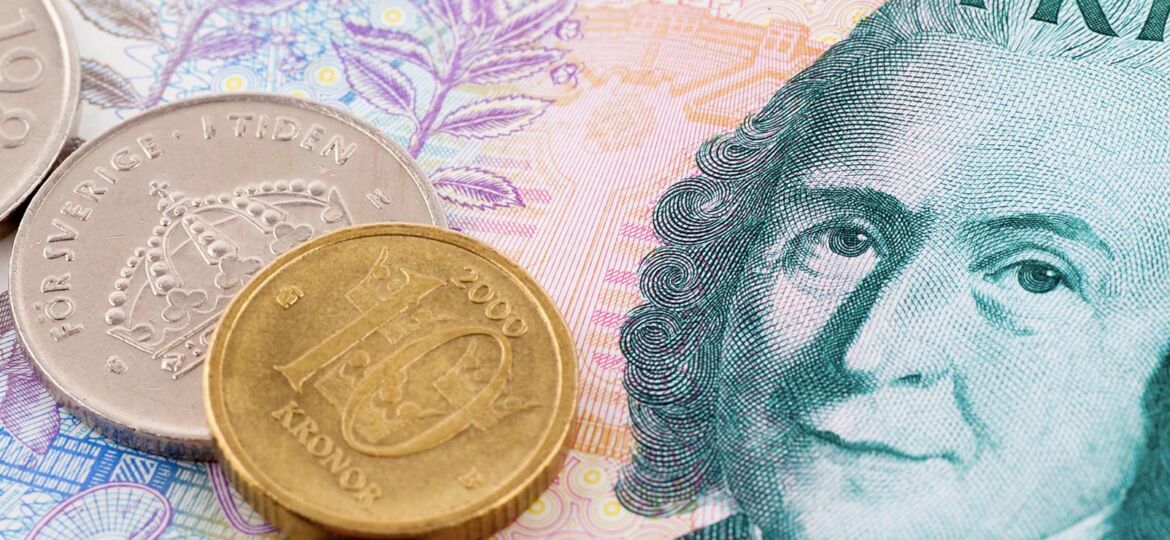
WHY THIS MATTERS IN BRIEF
With the use of cash diminishing around the world Governments are beginning to prepare themselves for a cashless future.
The use of cash in Sweden has dived by 40% since 2009 when the central bank decided to rescind the country’s highest denomination banknote and now, faced by the very real prospect of a cashless society – whether they like it or not – Sweden’s central bank Sveriges Riksbank has said it is investigating “the viability of issuing the world’s first national digital currency”.
Last year only 20% of all consumer payments in Sweden were made with cash compared with an average of 75% in the rest of the world, and as if that wasn’t enough of a nail in the coffin for cash, then the central bank revealed that bills and coins now represented just 2% of Sweden’s economy.
Cecilia Skingsley, deputy governor of Riksbank said the decision on whether or not to implement the unprecedented plan, based around an “e-krona” would be made in the next couple of years.
“We cannot wait any longer, we’re near the cliff edge,” said Skingsley during her keynote at the FinTech Stockholm 2016 conference this week, “the Riksbank is one of the central banks that will need to take an active stance on whether or not to issue a digital currency first.”
“The low use of cash in Sweden means that this is more of a burning issue for us than for most other central banks,” she said, “and although it may appear simple at first glance to issue e-krona, this is something entirely new for a central bank and there is no precedent to follow.”
As you’d expect there are a multitude of questions about just what impact implementing a national virtual currency and all its related technological structures would have on Sweden’s traditional banking system, and Skingsley said that the bank needs to answer questions even as basic as how e-krona would be issued, if it should generate interest, how transactions would be traced and a myriad of other questions.
Over the next coming months the bank will begin a formal process of identifying the technologies they’ll use, and while no reference was made to Bitcoin or Blockchain technology it’s likely that one of them atleast, if not possibly both, will play a role.
Initially it’s planned that the virtual currency, for the short term atleast, will run in parallel with cas and that then, slowly over time, cash will simply be phased out.
“The Riksbank will continue issuing banknotes and coins as long as there is demand for them,” she said, “it is our statutory duty and we will of course live up to it. Let me also, for the sake of clarity, repeat that the Riksbank has not decided to issue e-krona yet, but to investigate the possibilities.”
Everywhere you go now in finance circles there appears to be a wholesale acceptance that advances in technology will inevitably shake up traditional banking with many executives openly proselyting that the banks and banking system of the future will be fundamentally different beasts from the ones we have today.
“Access to the internet is widespread, and computers, smartphones and tablets are household items,” said Skingsley, “we need to investigate how e-krona payments could be initiated, whether that’s with smartphones, plastic cards or in other ways. The conditions are ripe for launching more electronic payment forms and if the market can make use of the new technology to launch new and popular payment services, why shouldn’t the Riksbank be able to do the same?”
Certainly from the tone, and the trends coming out of Sweden – which have been getting louder over the past few years – it is increasingly looking more like a question of when not if they make the switch. And then of course if they do then expect to see more countries, perhaps even led by Africa who arguably already have some of the necessary infrastructure in place, and India who have recently had to withdraw their two highest denomination banknotes because of endemic corruption, follow suit.
















